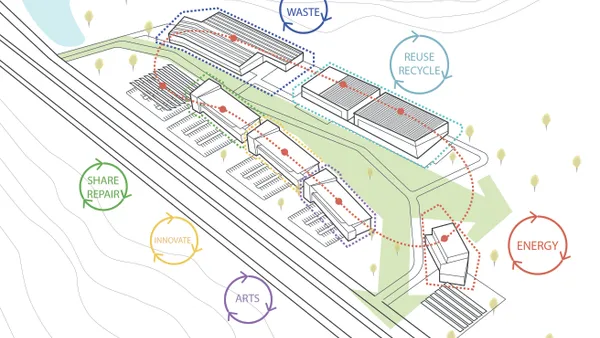Dive Brief:
- Athletic apparel company Reebok has announced plans to produce a compostable shoe made from Susterra, a corn-based plastic substitute, as reported by CBS Money Watch.
- While the top of the sneaker will be cotton, the corn-based sole of the sneaker will replace a traditional ethyl vinyl acetate (EVA) material that does not decompose and requires a lot of energy for manufacturing.
- This initiative is part of the company's recently-announced "Cotton + Corn" sustainable products plan to produce various types of plant-based footware.
Dive Insight:
According to the EPA, rubber, leather and textiles made up 9% of the waste stream in 2014. While Reebok's announcement is a significant step forward in the fight against textile waste, the athletic company is not the first to introduce a "sustainable" shoe. In late 2016, Adidas unveiled a prototype for a new sneaker made of 95% marine debris, all in an effort to "eliminate virgin plastic from the supply chain." Additionally, other apparel manufacturers like Speedo and Levi Strauss are focusing more on sustainable design and production of textiles, which all indicate a positive sustainability trend across retail.
Reebok's product is different in that it's not only made from recycled goods, but is also compostable — which Adidas's shoes are not. While the Susterra product is plant-based, company representatives ensured CBS that it is made of livestock feed and will not cut into existing food supply. This is important in the continued development of the circular economy, and according to Reebok President Matt O'Toole, "[Humans] have a responsibility to leave this planet as we found it for future generations."
The biggest red flag of the sustainable Adidas shoe was the price tag, which touted a steep $220. While consumers tend to be willing to pay more for sustainable goods, it will be important for Reebok and other apparel makers to ensure these goods are within an appropriate price range for consumers. Efforts to make sustainable goods will only go to waste if consumers cannot afford those goods, therefore a middle ground must be met.














